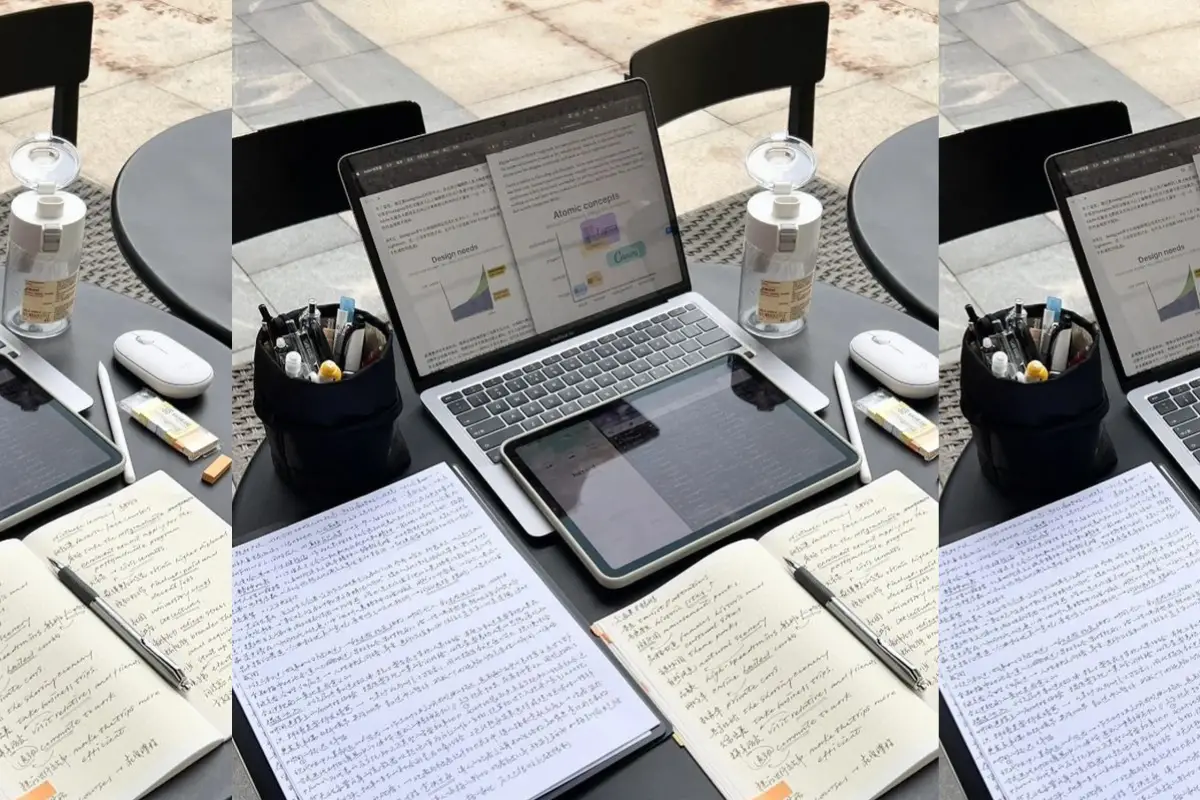Studying can feel overwhelming, but with the right strategies, it doesn’t have to be. These study tips for students are designed to help you focus smarter, retain more, and prepare for exams . Whether you’re cramming for finals or building consistent habits, these simple techniques will make your study sessions more effective—and maybe even a little enjoyable.
1. Create a Consistent Study Schedule
One of the most effective study tips for students is building a consistent routine. When you study regularly, the material stays fresh in your mind, and it becomes less stressful to prepare for big assignments or tests.
Personally, I’ve found that studying every other day keeps me sharp without feeling overwhelmed. It’s about building a rhythm—not cramming the night before an exam. A clear schedule makes it easier to prep for exams calmly, knowing that you’ve put in the time over days or even weeks.
Use a study planner to break down subjects, assignments, and upcoming deadlines into manageable chunks. Time-block your week and stick to it as much as possible—it builds discipline and reduces last-minute panic.
2. Use the Pomodoro Technique
Here’s one of those smart ways to study that actually works: the Pomodoro Technique. It’s simple—study for 25 minutes, then take a 5-minute break. After four rounds, take a longer 15–30 minute break.
I swear by this method. Twenty-five minutes doesn’t feel like a big sacrifice, but it’s just enough to get focused, lock in, and get things done. I like to set a cute timer, light a candle, and pretend I’m the main character in a study montage.
The trick is to treat those 25 minutes as sacred—no phone-checking, no side conversations. It’s focused time, and it adds up quickly.
If you’re someone who struggles with long study sessions, try this technique. It turns studying into a vibe rather than a chore.
3. Take Active Notes (Not Just Highlighting)
One of the most underrated key learning skills? Actually engaging with the material while you study. That means going beyond passive highlighting and into active note-taking.
Try rewriting your notes in your own words, creating question-and-answer flashcards, or turning textbook headings into mini quiz prompts. The more your brain works with the info, the more likely you are to remember it.
I like using sticky notes or color-coded pens to organize important ideas. It keeps things fun and visually appealing—especially when I’m reviewing before a test. Don’t be afraid to draw arrows, doodles, or little memory cues either. If it helps you understand faster, it’s worth it.
4. Teach the Material to Someone Else
If you can teach it, you really know it. That’s why one of the smartest study tips for students is pretending you’re the teacher.
Try explaining the topic to a friend, your sibling, or even your pet. You’ll quickly notice the gaps in your understanding—and that’s a good thing! It pushes you to clarify concepts and build confidence.
I’ve found that even reading notes out loud helps. Sometimes I’ll explain a concept while walking around my room like I’m giving a TED Talk. It sounds silly, but it works.
And if you’re in a study group, take turns teaching sections to each other. It’s collaborative, productive, and honestly makes studying more fun.
5. Study in Short, Focused Bursts
Long, exhausting study sessions aren’t always the answer. In fact, one of the most smart ways to study is to work in short, focused bursts—especially when your energy or attention span is low.
Try studying for 30–45 minutes max, then take a real break. Stretch, walk around, drink water—then come back refreshed. You’ll absorb more in three focused bursts than in three hours of distracted scrolling and rereading.
This is where study planners come in handy. Schedule two or three solid blocks of study time instead of a giant one you’ll probably procrastinate on.
Short sessions also make it easier to start studying in the first place. And let’s be real—starting is often the hardest part.
6. Take Practice Tests Frequently
If there’s one thing that can help you prep for exams calmly, it’s taking regular practice tests. They help you figure out what you actually know and where you’re just guessing.
Whether you’re using past papers, online quizzes, or making your own mock exam, testing yourself helps with recall, time management, and confidence. It also gives you a realistic view of what exam day will feel like.
I like doing practice tests a week or two before the real thing—it gives me time to review any weak spots and feel more in control. It’s less about getting every answer right and more about getting comfortable with the pressure.
Don’t just read—test yourself. It’s how you move from knowing the material to owning it.
7. Use Visual Aids (Mind Maps, Charts)
Some people learn best by seeing things laid out—and if that’s you, visual aids are your new best friend. Whether it’s mind maps, timelines, diagrams, or simple color-coded charts, these tools help break down big topics into something clear and memorable.
When I was prepping for a tough exam, I drew a flowchart of the whole topic across my bedroom wall. It wasn’t pretty, but it worked—and I still remember half of it.
Study tips for students don’t have to be boring. You can make visual aids cute, colorful, and personalized. Try using highlighters, sticky notes, or Canva templates if you’re studying digitally.
Visuals make it easier to see the big picture and spot connections between ideas, especially if you’re a more creative or spatial learner.
8. Eliminate Distractions with Focus Apps
Let’s be honest—your phone is probably the #1 reason you stop studying. One of the most underrated study tips is using focus apps to keep you off distractions and on task.
Apps like Forest, Flora, Study Bunny, and even simple timers like Pomofocus can help you stay accountable. Some even lock you out of certain apps while you study, which is a lifesaver when you’re tempted to “just check TikTok for one second.”
I’ve used Forest for months—it grows a tree every time I stay focused. Sounds small, but it seriously helps.
Whether you’re studying online or offline, digital tools can help you build discipline, reduce mindless scrolling, and stay in the zone. Don’t fight your phone—use it to your advantage.
9. Switch Up Your Study Environment
If your desk feels more like a sleep trap than a study space, it might be time for a change. One of the easiest study tips for students is simply switching up your environment.
Try studying at a local café, your school library, or even outside on a patio. A fresh space can reset your brain and boost focus—especially when you’re feeling unmotivated.
Personally, I like rotating between a cozy corner at home and a quiet library table. It keeps studying from getting too routine or dull.
Just make sure wherever you go is distraction-free and comfortable enough to focus. And if you’re studying online, setting up a specific digital workspace (with folders, apps, and timers) can help you stay mentally “in the zone.”
Sometimes, a new view is all it takes to refresh your mindset.
10. Get Enough Sleep & Stay Hydrated
No list of study tips for students is complete without reminding you about the basics: sleep and hydration. These might seem obvious, but they’re game-changers.
When you get enough rest, your brain processes and stores information better. Pulling all-nighters might feel like a quick fix, but it actually hurts your memory and focus.
Hydration is just as important. Drinking water keeps your mind sharp and reduces fatigue during long study sessions.
I make it a habit to drink a glass of water every hour and aim for 7–8 hours of sleep every night—especially during exam season. It helps me stay energized and approach studying with a clear head.
11. Use Memory Techniques to Boost Retention
One of the most powerful study tips for students is to use memory techniques like mnemonics, acronyms, and the method of loci. These tricks help your brain organize and recall information more easily.
For example, creating a catchy acronym or visual story can make even the toughest facts stick. I love turning lists into funny phrases or imagining a “memory palace” where each piece of info has its own room.
Using these key learning skills not only makes studying more fun but also super effective. Try experimenting with different techniques to find what clicks for you!
12. Track Progress & Reward Yourself
Celebrating small wins is one of the smartest study tips for students. Keep track of your progress using a planner or an app, and set goals that feel achievable.
Whether it’s finishing a chapter, acing a quiz, or sticking to your study schedule, rewarding yourself boosts motivation and makes the process enjoyable.
I like to treat myself to a favorite snack, a quick walk, or an episode of my favorite show after a productive session. These little incentives keep me going without feeling like studying is a chore.
Remember, consistency and positivity are key to long-term success.
Frequently Asked Questiond
Improving your study habits starts with creating a consistent routine, minimizing distractions, and actively engaging with the material. Using techniques like the Pomodoro method, taking active notes, and regularly reviewing content can help you retain information better and reduce stress.
Good study habits include setting a dedicated study schedule, breaking material into manageable chunks, taking regular breaks, using visual aids like mind maps, and testing yourself with practice quizzes. Staying hydrated and getting enough sleep also play a crucial role in effective studying.
Some top study tips for students include: creating a consistent study schedule, using the Pomodoro technique, taking active notes, teaching the material to others, studying in short bursts, taking practice tests, using visual aids, eliminating distractions with focus apps, switching study environments, getting enough sleep, reviewing regularly, and tracking progress with rewards.
Popular studying apps that help improve focus and organization include Forest, Pomofocus, Quizlet, Evernote, Notion, and Focus@Will. These apps offer features like timers, flashcards, note-taking, and ambient music to boost concentration and productivity










